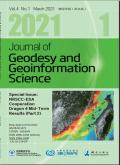引用次数: 3
摘要
在我国,征地立法中存在的最大问题之一就是“没收而不征收”的概念。这一概念经历了一个法律过程,从20世纪50年代到今天,通过不同的法规和司法决定形成和发展。在法律程序开始时,只有事实上的征用才被认为是没收而不征收,但自2010年以来,由于城市发展计划导致的对产权的干预也被认为是没收而不征收。这种情况造成了有计划的没收不征收扩大了没收不征收的范围,也造成了问题的增加。没收而不征收和计划没收而不征收的主要原因是由于缺乏资金等资源导致行政部门无法实现发展规划和城市发展规划。为了解决这个问题,已经作出了许多法律安排。这项研究的目的是从1956年至2020年期间的法律安排和司法决定的角度审查没收而不征收的法律发展情况。为了实现这一目标,对关于没收而不征收和计划没收而不征收概念的法律安排和司法决定的评价作为一个过程,在其影响、范围、内容和结果方面进行审查。在这一过程中制定的规章往往包括干涉产权的例外规定。虽然这些规定被司法判决废除,但立法者通过制定包含类似规定的新法律来抵制这些决定。对于这一过程的解决方案的最终规定是,服务区域不能被公众获得,可以由其所有者根据规划中的功能进行建设。在此基础上,对不征收中事实征收和计划征收概念的法律发展、对上一规定和现行规定的评价进行了分析。本文章由计算机程序翻译,如有差异,请以英文原文为准。
Kamulaştırmasız el atma ve hukuki el atma kavramlarının tüzel gelişiminin incelenmesi
In our country, one of the biggest problems of both administrations and landowners in the expropriation legislation is the concept of confiscation without expropriation. This concept has experienced a legal process that has been shaped and developed through different regulations and judicial decisions from the 1950s until today. At the beginning of the legal process, only de facto expropriations were accepted as confiscation without expropriation, however, since 2010, interventions on property rights caused by urban development plans are also considered as confiscating without expropriation. This situation caused the expansion of the scope of confiscation without expropriation via confiscation without expropriation by plans and also caused an increase in the problem. The main reason of confiscation without expropriation and confiscation without expropriation by plans is the failure of the administrations to realize development programs and urban development plans due to the lack of financing and other resources. Many legal arrangements have been made regarding the solution of the problem. The aim of the study is to examine the legal development of confiscation without expropriation in terms of legal arrangements and judicial decisions between 1956 and 2020. In order to achieve this goal, evaluations of the legal arrangements and judicial decisions regarding the concepts of confiscation without expropriation and confiscation without expropriation by plans are examined as a process, in terms of their impact, scope, content and results. The regulations made in this process often include exceptional provisions that interferes with property right. Although these provisions are annulled by the judicial decisions, the legislator resists against these decisions via making new laws containing similar provisions. The final regulation regarding the solution of this process is that the service areas, which cannot be acquired by the public, can be built by their owners in accordance with the function in the plan. As a result of the study, the legal development of the concepts de facto expropriation and confiscation without expropriation by plans in confiscation without expropriation, the evaluation of the last regulation and the current provisions regarding these concepts are given.
求助全文
通过发布文献求助,成功后即可免费获取论文全文。
去求助

 求助内容:
求助内容: 应助结果提醒方式:
应助结果提醒方式:


